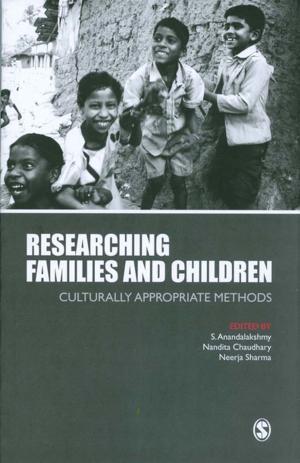Surviving Your Dissertation
A Comprehensive Guide to Content and Process
Nonfiction, Reference & Language, Reference, Research, Social & Cultural Studies, Social Science| Author: | Dr. Kjell Erik Rudestam, Dr. Rae R. Newton | ISBN: | 9781483323787 |
| Publisher: | SAGE Publications | Publication: | May 28, 2014 |
| Imprint: | SAGE Publications, Inc | Language: | English |
| Author: | Dr. Kjell Erik Rudestam, Dr. Rae R. Newton |
| ISBN: | 9781483323787 |
| Publisher: | SAGE Publications |
| Publication: | May 28, 2014 |
| Imprint: | SAGE Publications, Inc |
| Language: | English |
In the fully updated Fourth Edition of their best-selling guide, Surviving Your Dissertation, Kjell Erik Rudestam and Rae R. Newton answer questions concerning every stage of the dissertation process, including selecting a suitable topic, conducting a literature review, developing a research question, understanding the role of theory, selecting an appropriate methodology and research design, analyzing data, and interpreting and presenting results. In addition, this must-have guide covers topics that other dissertation guides often miss, such as the many types of quantitative and qualitative research models available, the principles of good scholarly writing, how to work with committees, how to meet IRB and ethical standards, and how to overcome task and emotional blocks. With plenty of current examples, the new edition features an expanded discussion of online research, data collection and analysis, and the use of data archives, as well as expanded coverage of qualitative methods and added information on mixed methods.
In the fully updated Fourth Edition of their best-selling guide, Surviving Your Dissertation, Kjell Erik Rudestam and Rae R. Newton answer questions concerning every stage of the dissertation process, including selecting a suitable topic, conducting a literature review, developing a research question, understanding the role of theory, selecting an appropriate methodology and research design, analyzing data, and interpreting and presenting results. In addition, this must-have guide covers topics that other dissertation guides often miss, such as the many types of quantitative and qualitative research models available, the principles of good scholarly writing, how to work with committees, how to meet IRB and ethical standards, and how to overcome task and emotional blocks. With plenty of current examples, the new edition features an expanded discussion of online research, data collection and analysis, and the use of data archives, as well as expanded coverage of qualitative methods and added information on mixed methods.















